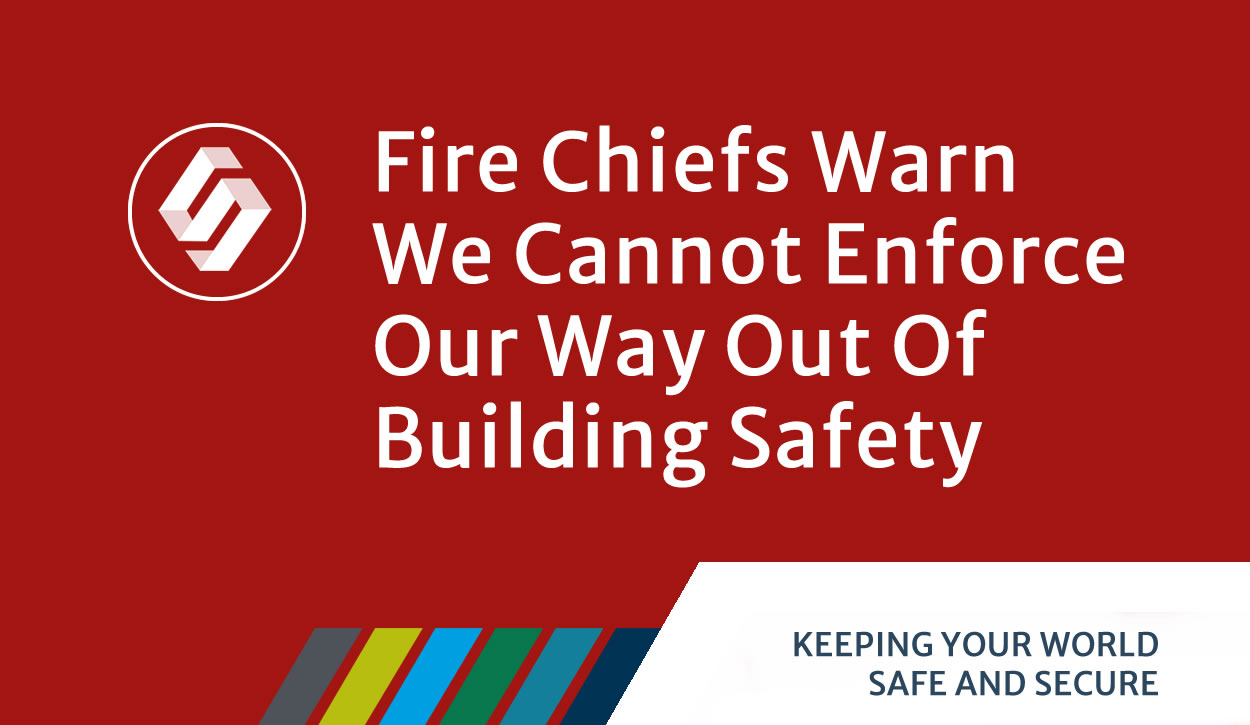Fire Chiefs Warn We Cannot Enforce Our Way Out Of Building Safety
Fire chiefs have warned of a broken building safety system blocking remediation Progress. Fire Chiefs have warned that deep flaws in the UK’s building safety system are slowing down the remediation of unsafe buildings, describing the current regime as “unsustainable.”

Ahead of the anticipated Remediation Bill, the National Fire Chiefs Council (NFCC) said relying on already stretched fire and rescue services to enforce safety compliance is not viable. In its newly launched Remediation Position Statement, the NFCC urged ministers to establish a centrally coordinated remediation programme to address ongoing issues with compliance, funding, accountability, and workforce shortages — warning that “anything less will leave critical safety gaps unaddressed.”
The NFCC welcomed the Government’s Remediation Acceleration Plan, which aims to complete work on all high-rise (18m+) buildings by 2029 and medium-rise (11m+) buildings by 2031, but said significant barriers remain. Recent estimates of affected buildings have ranged between 5,900 and 12,000, with nearly two-thirds of the 5,554 buildings in the public remediation portfolio still incomplete. The Government’s latest figure suggests around 9,000 buildings require work.
Funding remains fragmented and inconsistent, the NFCC said, with many schemes focusing only on cladding while leaving other serious defects unresolved. Complex eligibility criteria based on tenure, height, and materials have left many buildings in limbo.
The NFCC also highlighted financial and workforce pressures on fire and rescue services. Depending on the final number of buildings, inspections could cost between £29.86 million and £61.77 million, with a current working estimate of £46.11 million for around 9,000 buildings, at a time when many services face real-terms budget cuts. This, the NFCC warned, could reduce their capacity to oversee other high-risk premises such as hospitals and care homes.
Workforce shortages are compounding the problem. Fewer than 30 fully competent fire engineers currently serve across England’s fire and rescue services, while fire safety and building protection staff make up just 2.7% of the workforce. Many experienced staff have moved to the private sector, and training new specialists takes years.
The construction industry is also under pressure, with a shortfall of 250,000 workers, according to the Chartered Institute of Building. NFCC’s calls for a cross-departmental Construction Skills Strategy have so far gone unanswered. NFCC Chair Phil Garrigan said: “The Grenfell Tower fire was a national tragedy that exposed fundamental flaws in how we design, build, manage, and regulate our homes. Fire and rescue services have played a vital role in making buildings safer, but enforcement alone cannot fix a broken system. Eight years on, progress is not where it should be. We must tackle the root causes — fragmented oversight, weak regulation, and chronic gaps in workforce, funding and data. Fire risk must be embedded into every stage of building safety, not left to emergency response. The Grenfell Tower fire showed us, in the most devastating way, what happens when building regulations are too weak to protect people. The Government must implement the Inquiry’s recommendations in full and strengthen regulation to ensure no community is ever put at such risk again.”
The NFCC’s Position Statement calls for Government action to:
- Establish a centrally led, risk-based remediation programme with clear accountability and timelines.
- Develop a Construction Skills Strategy to address shortages in fire engineers, surveyors, and safety professionals.
- Ensure funding covers both internal and external defects without passing costs to leaseholders.
- Review building regulations guidance to ensure it is risk-based, realistic, and enforceable.
- Clarify enforcement powers for the Building Safety Regulator to enable coordinated action.
- Fully implement the Grenfell Tower Inquiry Phase 2 recommendations, including stronger regulation of professions, improved product testing, and public compliance data.
SS Systems are CHAS accredited, BAFE registered and, SSAIB certificated with BS EN ISO 9001:2015 & Construction Line approved, so your organisation can be assured that all our fire, security and safety equipment is designed, supplied, installed and maintained in accordance with the latest British Standards.
#FireAlarms #FireRiskAssessment #FireSafetyEquipment #FireAlarmMaintenance #AccessControl #CCTV

